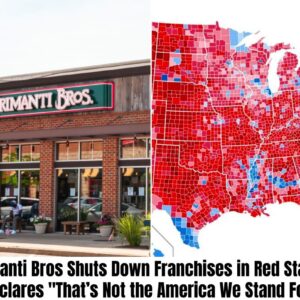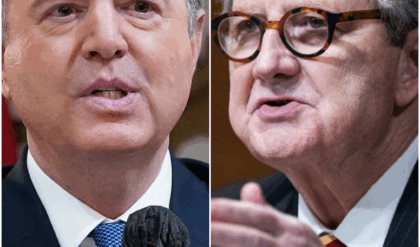
In the world of boxing, few names resonate as powerfully as Mike Tyson and Deontay Wilder. Both fighters have left an indelible mark on the sport, but their paths have diverged significantly over the years. Recently, Wilder made headlines with his candid criticism of Tyson, questioning the legitimacy of his legacy and his relevance in the current boxing landscape.
Wilder’s comments came during a media interaction where he was asked about Tyson’s standing as a Hall of Fame fighter. “How many Hall of Fame fighters did Mike Tyson actually fight?” Wilder posed, casting doubt on the quality of Tyson’s opposition throughout his career. He went on to assert that Tyson had faced only two notable Hall of Fame opponents: Evander Holyfield and Lennox Lewis. “Holyfield beat him twice, and Lennox beat him. Only two. So, what are you all talking about?” Wilder’s remarks reflect a sentiment that resonates with some boxing enthusiasts who believe Tyson’s legacy is built more on his ferocious persona than his actual accomplishments against elite competition.
Wilder’s critique does not stop at questioning Tyson’s opponents; he also expressed concern about Tyson’s continued involvement in boxing. When asked if he believed Tyson should consider stepping back from the sport, Wilder’s response was blunt: “He’s too old for this. At the end of the day, no one gives a f*** about Mike.” This statement underscores a growing sentiment among some fans and fighters that Tyson’s era has passed, and that his attempts to remain relevant in a sport that has evolved significantly may be misguided.
Critics of Wilder’s comments might argue that Tyson’s impact on boxing transcends mere statistics. Tyson became the youngest heavyweight champion in history at just 20 years old and was known for his explosive power and intimidating presence inside the ring. His ability to draw crowds and generate excitement was unparalleled, and many fans still hold a deep admiration for “Iron Mike.” Tyson’s legacy includes not only his achievements but also his influence on the sport, inspiring a generation of fighters who followed in his footsteps.
However, Wilder’s perspective highlights a critical conversation within boxing regarding the evaluation of a fighter’s legacy. Is it enough to have been a dominant champion, or must one also face and defeat other elite fighters to solidify their status? Wilder’s assertion that Tyson’s Hall of Fame status is questionable based on the quality of his opponents raises important questions about how we define greatness in boxing.
The tension between the old guard represented by Tyson and the new wave embodied by Wilder illustrates the evolving nature of the sport. As boxing continues to grow and change, the narratives surrounding its legends will undoubtedly shift as well. While Wilder’s comments may seem harsh, they reflect a broader discussion about the criteria for greatness in a sport that is constantly in flux.
In conclusion, Deontay Wilder’s criticism of Mike Tyson has sparked a debate that goes beyond personal rivalry. It challenges the boxing community to reflect on what it means to be a Hall of Fame fighter and the legacy one leaves behind. As both fighters continue to navigate their respective paths, the conversation surrounding their careers will likely persist, keeping the spirit of competition alive in the world of boxing.
News
NEWS: Elon Musk vs. Taylor Swift and Imane Khelif….
Elon Musk vs. Taylor Swift and Imane Khelif: A power play reshaping the digital landscape. Who’s next? In a dramatic turn of events, Elon Musk has once again demonstrated the immense influence he wields over the digital world, sparking chaos…
NEWS: Primanti Bros Shuts Down Franchises….
Primanti Bros Shuts Down Franchises in Red States, Declares “That’s Not the America We Stand For” Primanti Bros, the well-known Pittsburgh-based sandwich chain, has made a controversial decision to close all of its franchises in red states, citing that “That’s…
NEWS: NFL’s Travis Kelce Announces He’s Leaving…
NFL’s Travis Kelce Announces He’s Leaving Elon Musk’s ‘Hate Machine’ X App, Calling It a ‘Toxic Waste Dump’ After Scathing and Hurtful Comments About… In a dramatic turn of events, NFL star Travis Kelce has announced his departure from Elon…
NEWS: ‘Wicked’ Co-Stars Ariana Grande and Cynthia….
EXCLUSIVE: ‘Wicked’ Co-Stars Ariana Grande and Cynthia Erivo’s Cringey Public Lovefests Branded a ‘Sham’ to Cover Up ‘Behind-Scenes Hatred’ The public lovefest between Ariana Grande and Cynthia Erivo is a Wicked lie. That’s the dirt being dished by industry insiders, who said the on-set tension between…
NEWS: Sylvester Stallone is served by a black waitress….
Black Waitress Serves Sylvester Stallone, Saw Note on Check, and Burst into Tears Reba McEntire in Roberto Cavalli, Lainey Wilson in Area Suit & More ACM Awards 2024 Red Carpet Arrivals, Live Updates Country’s biggest stars gathered on the 2024 Academy…
NEWS: Steph Curry, 36, FINALLY VERIFIES THE STORIES….
At 36, Steph Curry FINALLY Confirms The Rumors Steph Curry Addresses When His NBA Career Could Be Over Steph Curry and the Golden State Warriors will host LeBron James and the Los Angeles Lakers on Christmas in what will…
End of content
No more pages to load











